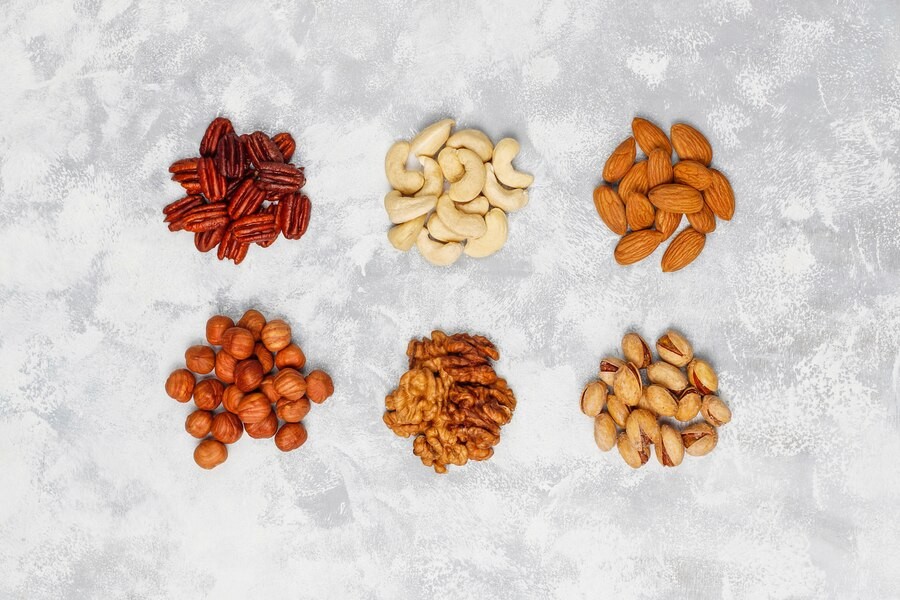Suplemen protein sangat penting bagi mereka yang aktif berolahraga. Salah satu suplemen protein yang cukup populer saat ini adalah protein bubuk (protein powder) yang dapat membantu meningkatkan performa, pemulihan, dan pembangunan otot.
Protein bubuk penting untuk memenuhi kebutuhan asupan protein selama aktif berolahraga. Ada banyak jenis protein bubuk yang bisa digunakan dengan manfaat yang berbeda-beda.
Ragam Jenis Protein Bubuk (Protein Powder) dan Manfaatnya
Whey Protein
Whey protein adalah jenis protein yang berasal dari susu dan merupakan hasil sampingan dari proses pembuatan keju. Whey protein dikenal karena memiliki asam amino esensial yang lengkap dan penyerapan yang cepat oleh tubuh.
Manfaat whey protein:
- Membantu pembentukan otot
- Mempercepat pemulihan
- Membantu menurunkan berat badan
Casein Protein
Sama seperti whey protein, casein protein juga berasal dari susu. Bedanya, casein dicerna dan diserap lebih lambat dibandingkan jenis protein lainnya, sehingga dapat menurunkan nafsu makan dan meningkatkan rasa kenyang.
Manfaat casein protein:
- Membantu mencegah pemecahan otot selama periode puasa seperti saat tidur
- Membantu meningkatkan kekuatan dan massa otot
Baca Juga: Mengapa Protein Penting untuk Pertumbuhan Massa Otot?
Soy Protein
Soy protein adalah protein yang berasal dari kedelai dan merupakan sumber protein nabati yang populer. Ini adalah alternatif yang baik untuk Anda yang memiliki intoleransi laktosa atau sedang menjalani diet vegan namun membutuhkan tambahan asupan protein.
Manfaat soy protein:
- Membantu menurunkan kadar kolesterol dan mendukung kesehatan jantung
- Membantu mengurangi risiko kanker tertentu karena kandungan isoflavon di dalamnya
- Membantu meningkatkan fungsi sistem kekebalan tubuh
Pea Protein
Pea protein adalah suplemen protein yang terbuat dari kacang polong kuning dan menjadi alternatif protein nabati selain soy protein. Pea protein sangat baik bagi Anda yang memiliki alergi terhadap susu sapi atau kedelai.
Manfaat pea protein:
- Membantu mendukung kesehatan jantung karena kandungan asam amino arginin
- Membantu meningkatkan rasa kenyang sehingga baik untuk manajemen berat badan
- Lebih ramah lingkungan dibandingkan protein hewani
Rice Protein
Rice protein berasal dari beras dan merupakan alternatif protein nabati selain soy protein dan pea protein. Meskipun tidak memiliki asam amino yang lengkap seperti whey dan casein, rice protein tetap bermanfaat.
Manfaat rice protein:
- Rice protein bersifat hipoalergenik sehingga cocok untuk yang memiliki alergi terhadap susu sapi, kedelai atau gluten
- Lebih mudah dicerna dan tidak menyebabkan gangguan pencernaan
Baca Juga: Tiga Jenis Whey Protein, Apa Perbedaannya?
Egg Protein
Meskipun egg protein tidak dianjurkan bagi pemilik alergi telur, namun egg protein memiliki protein yang lengkap. Egg protein aman dikonsumsi bagi pengidap alergi susu sapi atau whey protein, dan dapat dijadikan pilihan jika Anda tidak suka makan daging.
Manfaat egg protein:
- Sumber protein yang baik
- Membuat kenyang lebih cepat
- Mempercepat pemulihan
Setiap protein bubuk memiliki manfaat unik yang berbeda-beda. Dalam memilih suplemen protein seperti protein bubuk, sebaiknya disesuaikan dengan kebutuhan nutrisi, preferensi diet, dan tujuan olahraga Anda. Sebelum mengonsumsi suplemen protein, konsultasikan dengan dokter atau ahli gizi untuk mendapatkan saran yang tepat.
Anda juga bisa memanfaatkan konsultasi kesehatan bersama dokter kami dengan mengunduh aplikasi Ai Care melalui App Store atau Play Store.
Mau tahu informasi seputar nutrisi, makanan dan tips diet lainnya? Cek di sini, ya!
- dr Nadia Opmalina
Medicine.net. How Many Types of Protein Powders Are There and Which Is the Best?. Available from: https://www.medicinenet.com/types_of_protein_powders_and_which_is_the_best/article.htm
Harvard TH Chan (2021). Workout Supplements. Available from: https://nutritionsource.hsph.harvard.edu/workout-supplements/
Kris Gunnars, BSc (2023). Whey Protein 101: The Ultimate Beginner's Guide. Available from: https://www.healthline.com/nutrition/whey-protein-101
WebMD (2020). Casein Protein - Uses, Side Effects, and More. Available from: https://www.webmd.com/vitamins/ai/ingredientmono-1575/casein-protein
Lauren Panoff, MPH, RD and Amy Goodson, MS, RD (2022). What Is Soy Protein? All You Need to Know. Available from: https://www.healthline.com/nutrition/soy-protein-good-or-bad
Cleveland Clinic (2021). Everything You Should Know About Pea Protein. Available from: https://health.clevelandclinic.org/pea-protein
WebMD (2020). Rice Protein - Uses, Side Effects, and More. Available from: https://www.webmd.com/vitamins/ai/ingredientmono-1568/rice-protein
Cleveland Clinic (2022). Collagen. Available from: https://my.clevelandclinic.org/health/articles/23089-collagen












